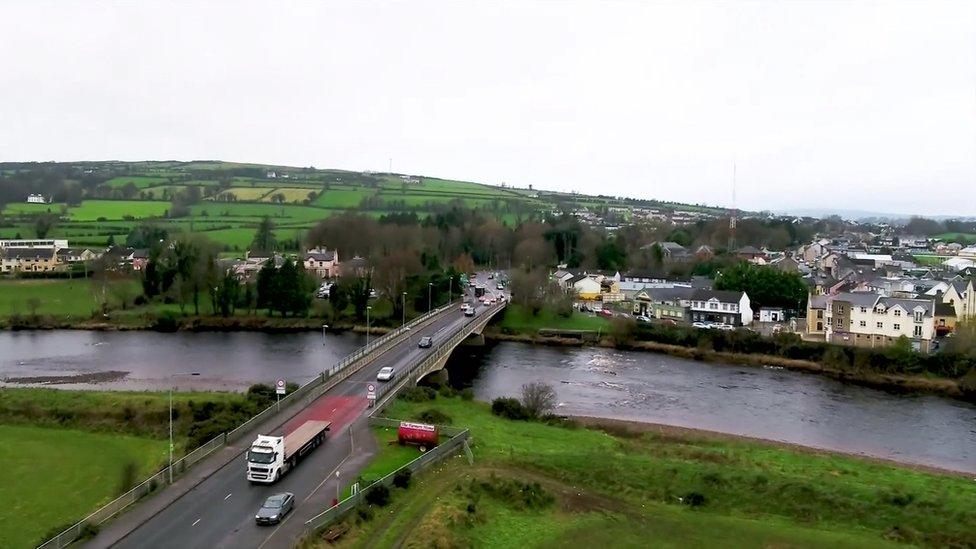Brexit: AAC publishes protocols for border amendment
- Published
- comments
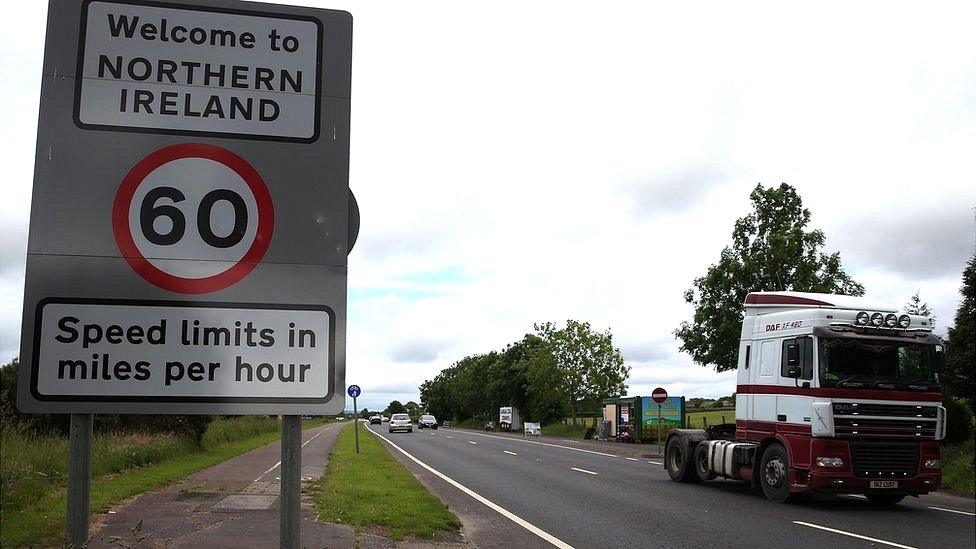
The Irish border is 310 miles long
A group led by Conservative MPs, has published two protocols aimed at replacing or amending the Brexit backstop.
The Alternative Arrangements Commission (AAC) suggests a package of technical and administrative solutions.
Both candidates for Conservative leader voiced support for an interim version of the package.
However, it had been dismissed by Northern Ireland business groups as unrealistic and lacking credibility.
The protocols still contain the most controversial elements of the interim proposals.
They include an idea that Ireland could leave the EU's food standards system and join the UK in a new system, albeit one which has the same rules as the EU.
Alternative Arrangements are ways of trying to maintain a soft Irish border without regulatory alignment between the UK and the EU.
This is important to Brexit supporters who want to leave the EU's customs union and have the freedom to diverge from EU regulations.
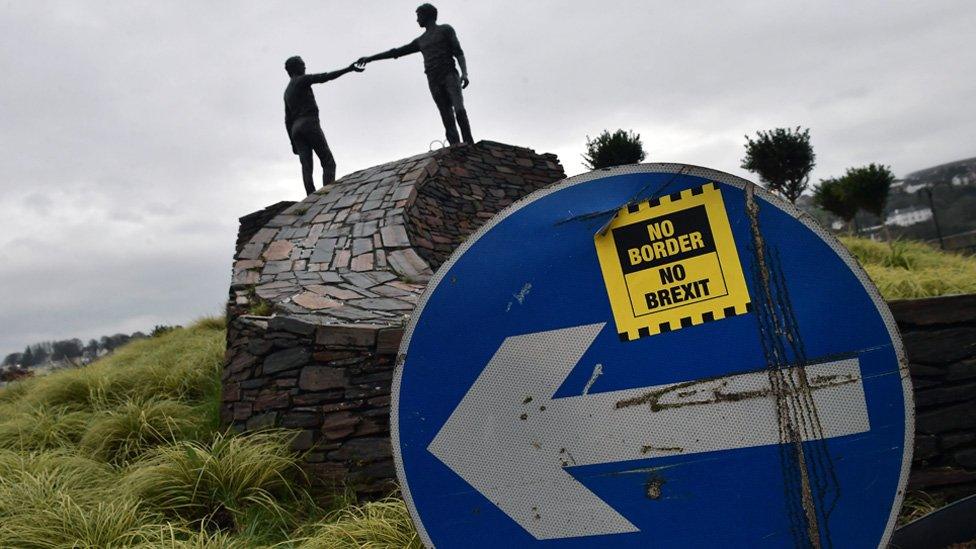
The AAC has suggested the widespread use of trusted traders schemes for cross-border businesses, which would minimise the need for any checking of goods.
It proposed any customs checks could happen "inland" at warehouses or company premises using mobile inspection teams.
Use of customs brokers is proposed for small businesses, with the very smallest firms being exempt from any new procedures.
Food standards are one of the most difficult border issues due to strict EU rules that food products entering from a non-member state must be subject to checks at the point of entry.
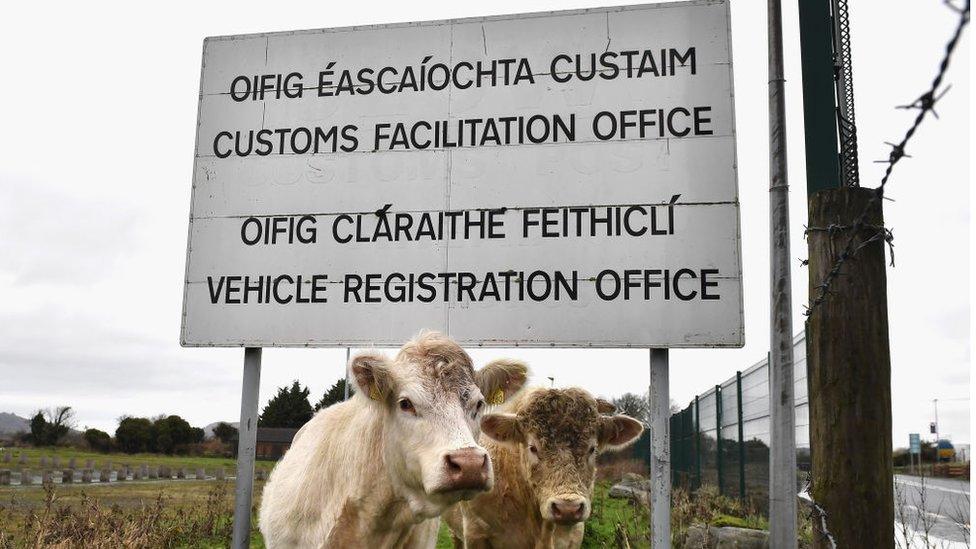
The AAC has suggested that one solution could be for Britain and Ireland to form a single zone for food standards.
The rules in the zone would remain aligned with the EU to minimise the prospect that goods would have to be checked when entering the continental EU.
If the UK sought to diverge from EU rules then Ireland could revert to the EU regulatory area.
Neale Richmond, who chairs the Irish Senate's Brexit committee, has described that idea as "beyond pie in the sky".
VAT (Value Added Tax) is also a difficult border issue.
Currently the UK is part of a single EU VAT area.
This means that when a UK product is exported to another EU country, VAT is paid where the product is consumed.
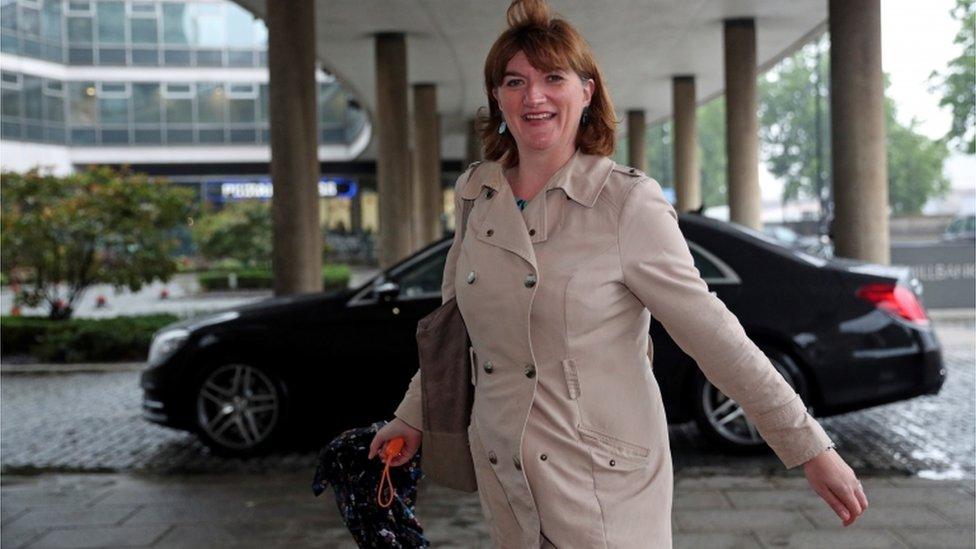
Nicky Morgan co-chairs the AAC with her colleague Greg Hands
When the UK leaves the EU, VAT liabilities will have to be assessed by customs officials at borders unless some new arrangement is in place.
The AAC suggests that the UK would have continued access to the EU's VAT Information Exchange System (VIES).
However, that would be an unprecedented arrangement - not even Norway, which has a major VAT deal with the EU, has access to VIES.
It would also seem to imply that the UK would have to continue to adhere to the EU VAT Directive and subsequent oversight from the European Court of Justice.
Nicky Morgan, one of the MPs who chaired the AAC, said they had produced "a detailed piece of work which we believe can clear the Brexit logjam".
"Our message to the EU is please take this report and the draft protocols seriously. We believe this is a workable way forward."
- Published9 July 2019

- Published20 June 2019
